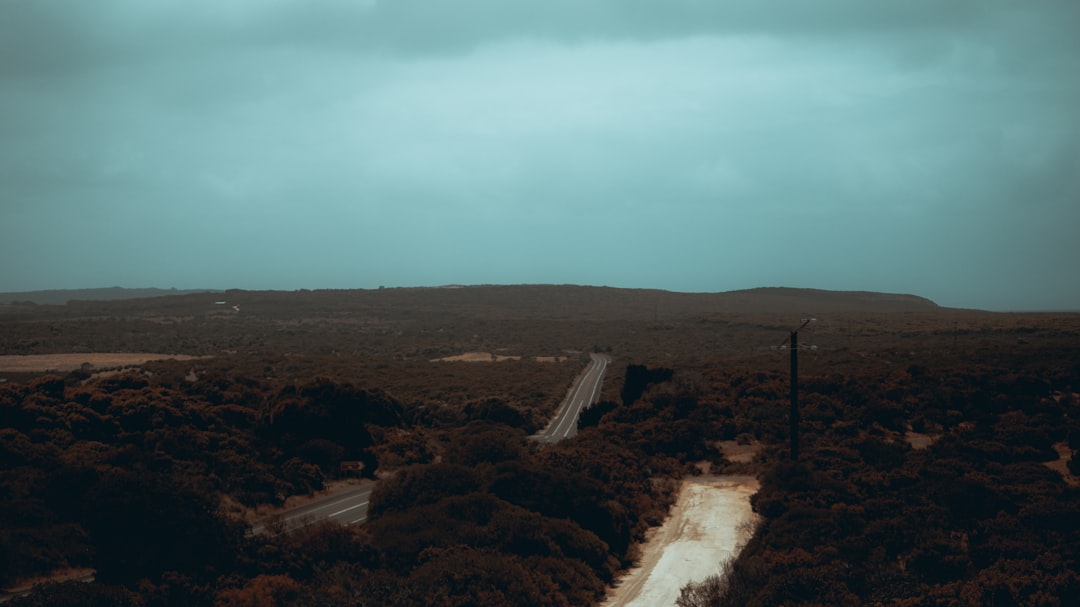Bali Budget Blueprint for Digital Nomads

Introduction
Bali has become one of the most popular destinations for digital nomads in recent years. The island offers a blend of tropical scenery, a relaxed lifestyle, and a growing community of remote workers. Yet many aspiring nomads wonder how far their money can stretch while living on the island. This guide provides a comprehensive budget blueprint that covers every major expense category, practical tips for saving money, and realistic sample budgets for different comfort levels. By the end of the article you will have a clear picture of how to plan your finances, what costs to expect, and how to enjoy Bali without compromising on the essentials that make remote work enjoyable.
Visa and Legal Considerations
Visa Options for Remote Workers
The most common entry point for digital nomads is the Visa on Arrival (VoA), which grants a 30‑day stay and can be extended once for an additional 30 days. For longer stays, the Social‑Cultural Visa (often called the B211A) allows up to six months of residence with the possibility of a one‑month extension each time you leave the country.
A newer option, the Remote Worker Visa, is in pilot phase and may be fully rolled out in the near future. It promises a one‑year stay with the ability to renew, but it requires proof of employment or freelance income, a minimum salary threshold, and health insurance that covers Indonesia.
Costs and Documentation
- Visa on Arrival: USD 35 per person, payable on arrival.
- Social‑Cultural Visa: USD 50 for the visa stamp, plus USD 35 for the initial 60‑day stay. Additional extension fees are roughly USD 35 per month.
- Remote Worker Visa (when available): Application fee around USD 150, plus a security deposit that is refunded upon exit.
You will need a passport valid for at least six months, a recent passport‑style photo, proof of onward travel, and evidence of sufficient funds or income. Having a digital copy of your documents stored securely on the cloud can save you time if immigration requests proof.
Accommodation
Finding the right place to live is the biggest factor in your monthly budget. Bali’s accommodation market ranges from budget guesthouses to high‑end villas. The key is to identify the area that matches your work style and lifestyle preferences.
Popular Areas for Nomads
- Canggu – Known for its surf culture, hip cafés, and a thriving co‑working scene. Prices are higher than in some other parts of the island but the community is strong.
- Ubud – The cultural heart of Bali, surrounded by rice terraces and temples. Ideal for those who prefer a quieter environment and a focus on wellness.
- Seminyak – A more upscale area with boutique hotels, fine dining, and nightlife. Rental costs are among the highest on the island.
- Sanur – A laid‑back beachfront town with a family‑friendly vibe. Prices are moderate and the beach is less crowded.
- Amed and Lovina – Small fishing villages on the north coast. Very affordable, but the nomad community is smaller and internet speeds can be variable.
Types of Accommodation
- Shared Guesthouse or Homestay – A private bedroom in a house with shared kitchen and bathroom. Ideal for those on a tight budget and who enjoy social interaction.
- Studio or One‑Bedroom Apartment – Offers more privacy and usually includes a small kitchen. Often located in newer developments with security and amenities such as a pool.
- Co‑Living Spaces – Purpose‑built for remote workers, these units combine private rooms with shared work areas, community events, and utilities included in the rent.
- Villa Rental – A full house or villa, sometimes shared among several nomads. Provides a luxurious experience but can be pricey unless you split costs.
Cost Ranges (Monthly)
| Accommodation Type | Budget (USD) | Mid‑range (USD) | Premium (USD) |
|---|---|---|---|
| Shared Guesthouse | 150‑250 | 250‑350 | 350‑500 |
| Studio/Apartment | 300‑450 | 450‑700 | 700‑1,200 |
| Co‑Living | 400‑600 | 600‑900 | 900‑1,300 |
| Villa (shared) | 500‑800 | 800‑1,200 | 1,200‑2,000 |
Prices fluctuate with the season. The high season (July‑August and December‑January) can push rents up by 10‑20 percent, while the low season (February‑April) often brings discounts.
Tips to Reduce Housing Costs
- Negotiate a longer lease (3‑6 months) to secure a lower monthly rate. Landlords prefer stability and may offer a discount.
- Share a villa or co‑living space with 2‑4 other nomads. Splitting the rent and utilities can bring a premium experience down to a mid‑range budget.
- Use local platforms such as Facebook groups “Bali Digital Nomads” or “Canggu Housing” to find deals that are not listed on international sites.
- Consider staying a few weeks in a budget guesthouse before committing to a longer lease. This gives you time to explore neighborhoods and avoid costly relocation later.
Food and Groceries
Eating out in Bali can be as cheap or as expensive as you make it. The island offers a wide spectrum of food options, from warungs (local eateries) serving simple meals for a few dollars to upscale restaurants charging $30‑$50 per plate.
Typical Meal Costs
- Street Food / Warung – Nasi goreng, mie goreng, or satay for $1‑$3 per dish.
- Café (Western‑style) – Smoothie bowls, avocado toast, or specialty coffee for $5‑$10.
- Mid‑range Restaurant – A three‑course meal for $12‑$20.
- Fine Dining – International cuisine or seafood specialty for $30‑$50.
Grocery Shopping
Most nomads purchase a mix of fresh produce, staples, and occasional imported items. Supermarkets such as Bintang, Coco Supermarket, and Alfamart provide affordable local produce, while Bali Hart and Grand Lucky stock imported goods at higher prices.
Average monthly grocery spend:
- Frugal – $80‑$120 (mostly local produce, rice, beans, and occasional cheap protein).
- Balanced – $120‑$200 (mix of local and imported items, occasional snacks, and occasional wine or craft beer).
- Comfort – $200‑$350 (regular consumption of imported goods, organic produce, and specialty items).
Sample Grocery List (Monthly)
- Rice (10 kg) – $12
- Fresh vegetables (local) – $30
- Fruit (bananas, mangoes, papaya) – $20
- Chicken breast (2 kg) – $12
- Eggs (30) – $5
- Tofu and tempeh – $6
- Coconut milk – $4
- Cooking oil – $5
- Spices (turmeric, coriander, chili) – $6
- Coffee (local beans) – $10
- Snacks (crackers, nuts) – $10
Total: $110 – fits within a frugal budget while allowing for occasional dining out.
Money‑Saving Strategies
- Shop at traditional markets (pasar) early in the morning for the freshest produce and best prices.
- Use a reusable water bottle and filter; bottled water can add $0.30‑$0.50 per bottle.
- Cook simple meals at home. A basic stir‑fry with rice, vegetables, and a protein costs less than $1 per serving.
- Take advantage of “happy hour” deals at cafés where coffee and snacks are discounted.
- Join a local buying group or cooperative for bulk purchases of rice, flour, and other staples.
Transportation
Getting around Bali is relatively straightforward. Most nomads rely on scooters, but there are alternatives for those who prefer not to ride two wheels.
Scooter Rental
- Daily rate – $5‑$7.
- Monthly rate – $80‑$120 for a 125 cc scooter, insurance included.
A valid international driving permit (IDP) or an Indonesian SIM‑C license is required. Scooter insurance is inexpensive but highly recommended; it typically costs $15‑$25 per month.
Car Rental
- Daily rate – $35‑$50 for a compact car.
- Monthly rate – $800‑$1,200 for a small SUV.
Car rentals are popular for families or groups traveling together, but they are not necessary for most solo nomads.
Ride‑Hailing
Apps such as Gojek and Grab dominate the ride‑hailing market. Prices are comparable to a taxi in many Western cities, but surge pricing can occur during peak hours.
- Average short ride (3‑5 km) – $2‑$3.
- Average longer ride (10‑15 km) – $5‑$7.
Public Transport
Bali’s public bus system is limited, but there are “bemo” minivans that connect major towns for $1‑$2 per ride. Not ideal for daily commuting but useful for occasional trips.
Transportation Budget (Monthly)
| Mode | Low (USD) | Mid (USD) | High (USD) |
|---|---|---|---|
| Scooter (rent+fuel) | 80‑120 | 120‑150 | 150‑200 |
| Car (rent+fuel) | 800‑1,200 | 1,200‑1,500 | 1,500‑2,000 |
| Ride‑hailing (average 20 rides) | 50‑80 | 80‑120 | 120‑180 |
| Combined (scooter + occasional ride‑hailing) | 130‑200 | 200‑280 | 300‑400 |
Tips to Keep Costs Low
- Choose a fuel‑efficient scooter (110‑125 cc) and keep it well maintained to avoid extra fuel consumption.
- Fill up at local “pertamina” stations rather than tourist‑focused pumps; the price difference can be $0.05‑$0.10 per liter.
- Use Gojek’s “GoCar” for short trips when you prefer not to ride a scooter.
- Plan your routes to avoid rush hour traffic in popular areas such as Kuta and Seminyak.
Co‑working Spaces
A reliable internet connection and a comfortable work environment are essential for digital nomads. Bali offers a wide range of co‑working spaces, from basic desks to full‑service offices.
Popular Co‑working Hubs
- Dojo Bali (Canggu) – Known for its strong community, fast internet, and regular events.
- Hubud (Ubud) – The original Bali co‑working space, set in a lush garden environment.
- Outpost (Canggu & Ubud) – Offers private offices, meeting rooms, and a vibrant network of freelancers.
- Biliq (Seminyak) – A boutique space with a focus on design professionals.
- Kosta (Sanur) – Family‑friendly and close to the beach.
Pricing Options
- Hot Desk – $120‑$180 per month, includes a flexible desk, high‑speed Wi‑Fi, coffee, and access to events.
- Dedicated Desk – $180‑$250 per month, a permanent desk in a shared area.
- Private Office – $350‑$800 per month, depending on size and location.
Many spaces provide day passes for $10‑$15, allowing you to test the environment before committing.
Internet Reliability
- Most co‑working spaces guarantee at least 30 Mbps download speed, with redundancy through fiber and 4G backup.
- If you work from a villa or apartment, a standalone fiber connection (IndiHome) costs $30‑$45 per month for speeds up to 100 Mbps.
Budgeting for Workspaces
- Frugal – Use cafés with free Wi‑Fi and work from public areas. Allocate $0‑$30 for occasional coffee purchases.
- Balanced – Join a hot‑desk membership at a reputable space. Expect $150‑$200 per month.
- Premium – Dedicated desk or private office for $250‑$600, plus occasional meeting room fees.
Savings Hacks
- Share a dedicated desk with a fellow nomad and split the cost.
- Look for month‑to‑month discounts; many spaces lower the price for a 3‑month commitment.
- Attend community events; networking may lead to free coworking days or referral discounts.
Health, Insurance, and Safety
Staying healthy is a priority, especially when you are living abroad for an extended period.
Medical Facilities
- Bali International Medical Center (BIMC) – Kuta – Offers comprehensive services, English‑speaking staff, and an emergency department.
- Sanglah General Hospital – Denpasar – Public hospital with lower costs but longer wait times.
- Bali Island Hospital – Nusa Dua – A private, upscale hospital with modern facilities.
Many expatriates purchase a local health insurance plan that covers routine visits and emergencies. International policies are also an option for those who travel frequently.
Insurance Options
| Type | Approximate Annual Cost (USD) | Coverage Highlights |
|---|---|---|
| Local Health Insurance | 300‑500 | Hospitalization, outpatient, limited dental |
| International Travel Insurance | 600‑1,200 | Worldwide coverage, repatriation, COVID‑19 |
| Accidental & Personal Liability | 150‑250 | Personal injury, legal assistance |
Choose a plan that includes coverage for COVID‑19 treatment, as local hospitals may require upfront payment.
Safety Tips
- Keep a copy of your passport, visa, and insurance documents both digitally and in a secure physical location.
- Use reputable taxi or ride‑hailing services at night.
- Store valuables in a safe or lockbox; many villas provide a small safe in the bedroom.
- Be aware of the “traffic jam” culture; avoid driving during rush hour if you are not experienced with local road conditions.
Entertainment, Leisure, and Lifestyle
Living in Bali is not just about work; the island offers a rich tapestry of cultural experiences, outdoor activities, and social events.
Typical Costs
- Surf Lesson (2‑hour) – $30‑$45.
- Yoga Class (drop‑in) – $8‑$12.
- Cultural Tour (temple, rice field) – $20‑$35.
- Nightlife (bar entry + drinks) – $15‑$30.
- Weekend Trip (Nusa Penida, Gili Islands) – $80‑$150 (including boat, guide, and meals).
Monthly Entertainment Budget
| Lifestyle Level | Approximate Monthly Cost (USD) |
|---|---|
| Frugal | 50‑100 |
| Balanced | 100‑200 |
| Premium | 200‑400 |
Free or Low‑Cost Activities
- Walk or bike through the rice terraces of Ubud early morning.
- Attend free beach clean‑up events organized by local NGOs.
- Explore local markets (Ubud Art Market, Kuta Night Market).
- Join a community meetup or language exchange; many are hosted in co‑working spaces at no charge.
Utilities and Internet
If you rent an apartment or villa, utilities are often billed separately from rent. The main utilities to consider are electricity, water, and internet.
Electricity
- Average consumption – 150‑250 kWh per month for a single occupant using a fan, a small air‑conditioner, and basic electronics.
- Cost – $0.10‑$0.12 per kWh, translating to $15‑$30 per month.
Using air‑conditioners heavily can push the bill above $50, especially during the hot season (April‑October).
Water
- Cost – $1‑$2 per cubic meter. Most rentals include a small amount of water in the rent; excess usage is billed at $0.20 per liter.
Internet
- Fiber (IndiHome) – $30‑$45 per month for 100 Mbps, unlimited data.
- Mobile 5G hotspot – $10‑$20 per month for a data plan of 30‑50 GB, plus a $5‑$10 device rental.
If you work from a co‑working space, you can usually skip a home internet plan and allocate the savings elsewhere.
Utility Budget (Monthly)
| Category | Low (USD) | Mid (USD) | High (USD) |
|---|---|---|---|
| Electricity | 15‑25 | 25‑40 | 40‑60 |
| Water | 2‑5 | 5‑8 | 8‑12 |
| Internet | 0‑30 (if using co‑working) | 30‑45 (fiber) | 45‑70 (fiber + mobile backup) |
Money‑Saving Tips
- Turn off appliances when not in use; many Balinese homes use simple switches rather than automated timers.
- Use a ceiling fan instead of an air‑conditioner when the temperature is moderate.
- Choose a landlord who bundles water and electricity into the rent; this simplifies budgeting and often results in a modest discount.
Sample Monthly Budgets
Below are three sample budgets that illustrate how different lifestyle choices affect total monthly expenses. All figures are in US dollars and reflect average costs as of 2025.
Frugal Nomad (Budget‑Conscious)
- Visa (Social‑Cultural, 2‑month extension): $35
- Accommodation (shared guesthouse): $200
- Food (home‑cooked + occasional warung): $150
- Transportation (scooter rent + fuel): $100
- Co‑working (café Wi‑Fi, occasional day pass): $30
- Utilities (electricity, water, minimal internet): $30
- Health insurance (local): $40
- Entertainment & Leisure (free activities, occasional yoga): $50
- Miscellaneous (laundry, toiletries, small emergencies): $50
Total: $785
Balanced Nomad (Comfort‑Focused)
- Visa (Social‑Cultural, 3‑month extension): $50
- Accommodation (studio apartment): $500
- Food (mix of groceries and dining out): $250
- Transportation (scooter + occasional ride‑hailing): $180
- Co‑working (hot‑desk membership): $170
- Utilities (electricity, water, fiber internet): $80
- Health insurance (international travel): $800 (annual cost divided by 12)
- Entertainment & Leisure (surf lessons, yoga, weekend trips): $150
- Miscellaneous (laundry, personal care, gifts): $100
Total: $2,180
Premium Nomad (Luxury Lifestyle)
- Visa (Remote Worker Visa, when available): $150
- Accommodation (private villa with pool, shared with 2 others): $1,200 (your share)
- Food (high‑end restaurants, organic groceries): $500
- Transportation (car rental + fuel): $1,200
- Co‑working (dedicated desk + private office): $600
- Utilities (high‑usage electricity, premium fiber, backup 5G): $150
- Health insurance (comprehensive international plan): $1,200 (annual cost divided by 12)
- Entertainment & Leisure (private surf instructor, spa, cultural tours): $400
- Miscellaneous (personal shopping, premium laundry service): $200
Total: $5,500
These examples show that a comfortable stay in Bali can be achieved for under $1,000 per month if you prioritize frugality, while a more luxurious experience can comfortably sit above $4,000. The key is to align your spending with your income and personal goals.
Money‑Saving Hacks for the Long‑Term Nomad
-
Currency Exchange Strategy
- Use a multi‑currency debit card (e.g., Revolut, Wise) that offers near‑market rates and low foreign‑transaction fees.
- Exchange larger sums when the IDR (Indonesian Rupiah) rate is favorable; small daily exchanges incur higher fees.
-
Bulk Purchasing
- Buy rice, cooking oil, and non‑perishable items in bulk from wholesale markets. Store them in airtight containers to avoid spoilage.
-
Shared Services
- Split the cost of a private internet line with housemates. A single fiber connection can serve multiple rooms at a fraction of the individual cost.
-
Loyalty Programs
- Join Gojek’s “GoPay” loyalty program; accumulated points can be redeemed for rides, food delivery, or grocery purchases.
-
Seasonal Rental Discounts
- Negotiate a lower rent during the low season (February‑April). Landlords often prefer occupancy over vacancy and may agree to a 10‑15 percent discount.
-
Co‑working Space Referral Credits
- Many co‑working spaces reward members who refer new clients with free days or discounted rates. Leverage your network to earn credits.
-
Health Maintenance
- Stay active with free outdoor activities (surf, hiking, yoga in the park). Preventive health reduces the likelihood of costly medical visits.
-
Tax Planning
- If you are a US citizen, remember that foreign earned income exclusion (FEIE) may reduce your taxable income. Keep detailed records of your stay and income to claim the exclusion.
Preparing for Arrival
-
Financial Setup
- Open a local bank account (e.g., BNI, BCA) after you have an address. This makes paying rent and utilities easier and reduces ATM fees.
- Keep a small emergency fund in cash (approximately $200) for situations where cards are not accepted.
-
Digital Organization
- Store scanned copies of your passport, visa, insurance, and important contracts on a secure cloud service (Google Drive, Dropbox).
- Install VPN software to protect your data when using public Wi‑Fi in cafés or co‑working spaces.
-
Packing Essentials
- Light, breathable clothing, a reusable water bottle, a basic first‑aid kit, and a power adapter (type C & F plugs).
- A good-quality, lockable backpack for day trips and a small lock for your scooter.
-
Community Integration
- Join online groups before you land (Facebook “Bali Digital Nomads”, “Canggu Community”).
- Attend a welcome meet‑up at a co‑working space within the first week to build a support network.
Conclusion
Bali offers an incredible blend of natural beauty, cultural richness, and a thriving remote‑work ecosystem. By understanding the main cost drivers—visa, accommodation, food, transportation, coworking, utilities, health, and leisure—you can craft a budget that aligns with your lifestyle and income. Whether you aim to live on a shoestring, enjoy a comfortable mid‑range experience, or indulge in a premium island lifestyle, the numbers presented in this blueprint provide a realistic foundation for planning.
Remember that flexibility is a hallmark of the nomadic life. Prices fluctuate with the season, personal preferences evolve, and new opportunities (such as the upcoming Remote Worker Visa) can reshape the financial landscape. Stay informed, negotiate whenever possible, and leverage the strong community of fellow digital nomads to discover hidden savings and authentic experiences. With careful budgeting and a spirit of adventure, Bali can be both a productive workspace and a fulfilling home base for months or even years to come.
Random Posts

Explore Africa’s Prime Digital Nomad Havens
Discover Africa’s top digital nomad spots where fast WiFi, low cost living and stunning scenery meet vibrant culture. This guide reveals the best cities and towns for remote work and adventure
2 months ago

Explore the World as a Nomad Best Flights and Destination Insights
Discover the top nomad-friendly cities with fast internet, low living costs, and easy visas, plus smart flight strategies to travel smoothly between them and keep your remote work thriving
2 months ago

Europe’s Top Digital Nomad Havens
Discover Europe’s prime digital-nomad cities where fast internet, vibrant coworking scenes, affordable living and flexible visas let you work productively while soaking up local culture.
1 month ago

Smart Money Moves for Digital Nomads Banking Taxes and Crypto
Learn how digital nomads can secure border-proof banking, master tax residency tricks, and safely integrate crypto into cash flow with practical tools and step-by-step strategies.
1 day ago

Building a Global Nomad Network Through Meetups
Meetups turn isolated digital nomads into a trusted global network, fostering face-to-face connections, collaborations and mentorship that virtual chats can’t replace.
2 months ago
Latest Posts

Essential Software Every Remote Professional Should Use
Master remote work with essential tools: instant messaging like Slack, high definition video calls such as Zoom, and asynchronous voice apps. Streamline communication, stay connected and boost productivity.
1 day ago

Mastering Remote Work Productivity for Digital Nomads and Freelancers
Learn proven habits, tools, and tactics that help digital nomads and freelancers stay focused, deliver quality work, and maintain a sustainable lifestyle while traveling the world.
1 day ago

Tech‑Friendly European Towns Perfect for Remote Living
Discover Europe’s best small towns where fast internet, affordable living and vibrant tech communities let you work remotely while soaking up historic charm, lakeside views or mountain air.
1 day ago